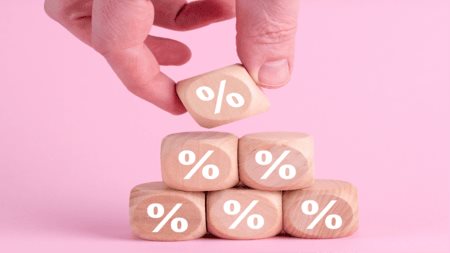Tim Akinnusi of Nedbank explains the affect that interest rate hikes have on the cost of living and people's ability to service debt.
VIDEO TRANSCRIPT
Reporter: We've recently experienced a number of interest rate hikes, and this has an affect on the cost of living and people's ability to service debt. How does this all affect people's ability to buy homes? We are joined by Tim Akinnusi, Head of Sales and Client Management, at Nedbank Home Loans. Welcome back.
Tim: Thank you, Bonnie.
We've experienced a lot of interest rate hikes recently. Do you see more coming down the line?
So Bonnie, we are facing very tough economic conditions. In the last 24 months, we've seen a total of 200 basis points hike in the interest rate. And it's likely that we are at the back-end of the rate cycle. But that all depends on our ability to stimulate the economy and go the GDP and create jobs. Because the more people feel confident about it and its potential, the more likely they are to go back into the housing market and to take on long-term debt.
And how does this affect people's ability to buy homes, or make that decision to buy a new home, or just service their existing debt?
So the impact on an interest rate hike on a consumer is a direct one, because the cost of servicing the existing date then goes up immediately. But obviously their earnings haven't increased at the same rate, so that puts a lot of pressure on their disposable income, and a lot of tough choices need to be made. So consumers need to prioritise and think about the things that are really important to them. So, for example, they need to reflect on things like how much they eat out and how much that costs them, and if they have to maybe cut that down by one less, they could create more room for more important things such as paying off their bond. Also it's important that consumers do away and pay off debt that attracts high interest rates, because at that point in time, with further rate hikes, it just continues to become an even bigger burden. So the reality is that we all are in this and we need to prioritise very smartly, and I would definitely expect that consumers would see their homes as one of the top priorities that they need to consider.
Are there ways that NedBank facilitates this kind of communication with their clients?
We are constantly in contact with our customers on their arrears and informing them of the importance of not defaulting. Because the minute you make one default, you affect your ability to get further credit in future. So when things do improve, you want to be in a situation where you can continue to be seen as a good rate payer, and you want to also maintain your credit profile as well. So we always advise customers to say, if you know that your difficulty is going to be long term, rather approach us and sell your house so that we can preserve the value of it. If it's a short-term one, we can certainly restructure your accounts and help you pay a lot less over a shorter period and then go back to your normal repayments.

